Mobilising evidence and knowledge bite size one
The slides and script from mobilising evidence and knowledge bite size video one on mobilising evidence and knowledge.
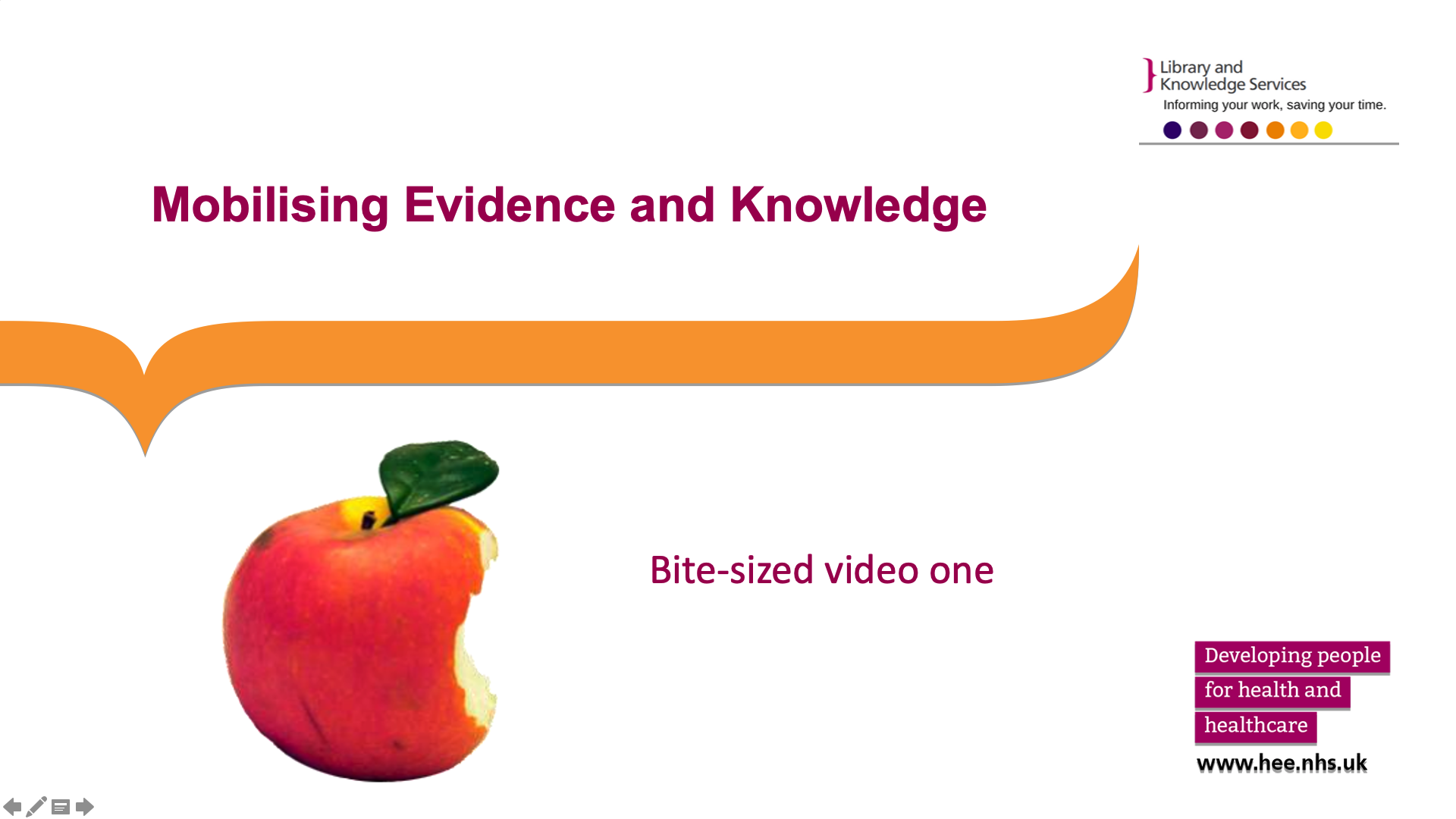
Welcome to the first in our short series of bite-sized introductions about mobilising evidence and knowledge
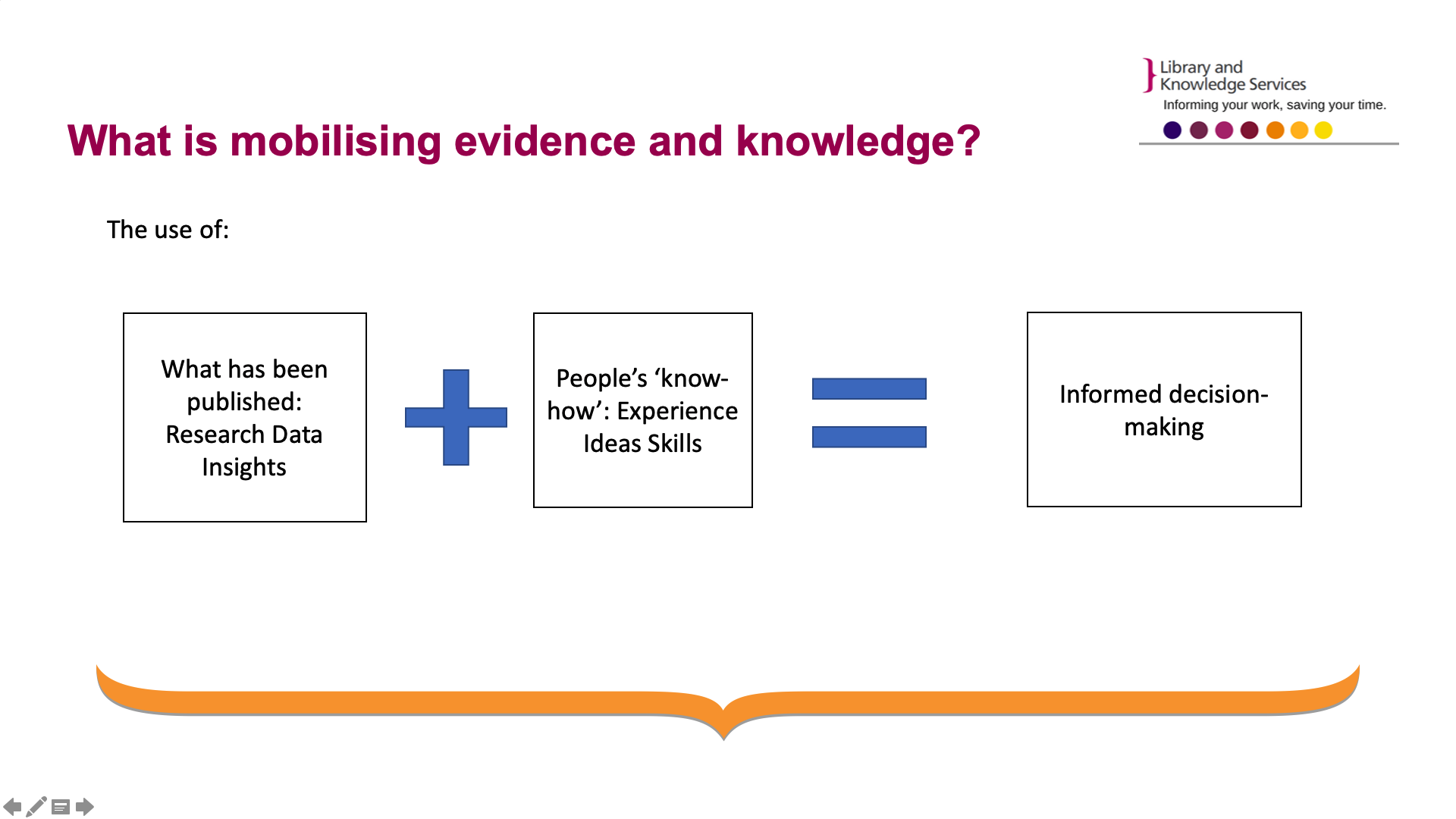
Mobilising evidence and knowledge describes a process where people use research, data, insight and the skills, experience or ideas from other people to help them with their work. It can underpin informed decision making by tapping into what has been published and other peoples know how.
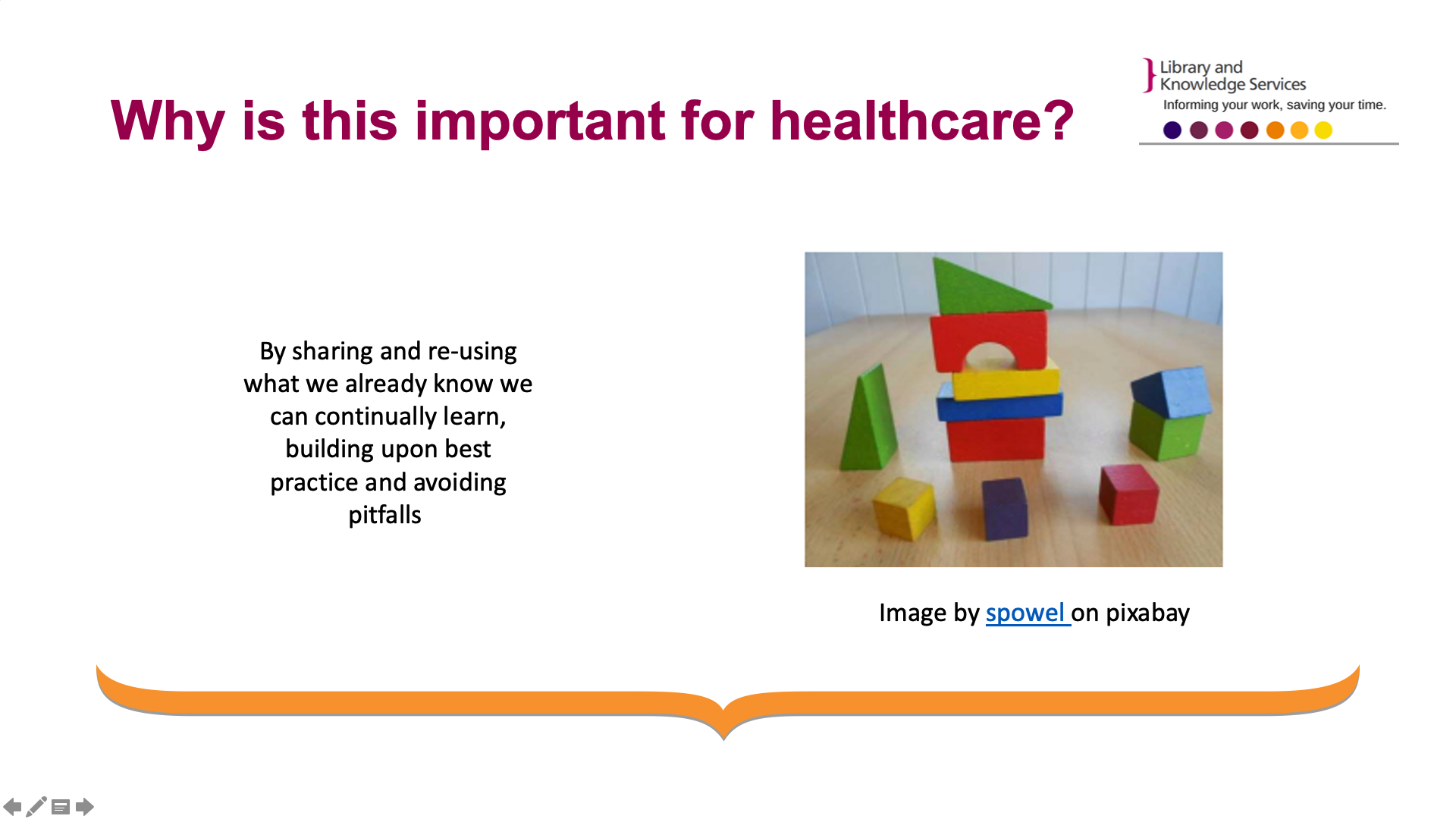
We know that healthcare is a knowledge based industry undergoing constant change with ever increasing demand and complexity of care. There is a call to become more streamlined and efficient to avoid unnecessary duplication. To continually learn so that future work builds upon best practice and avoids pitfalls. To drive innovation. This is why mobilising evidence and knowledge is important as it is by sharing and re-using what we know already that we can continue to make improvements.
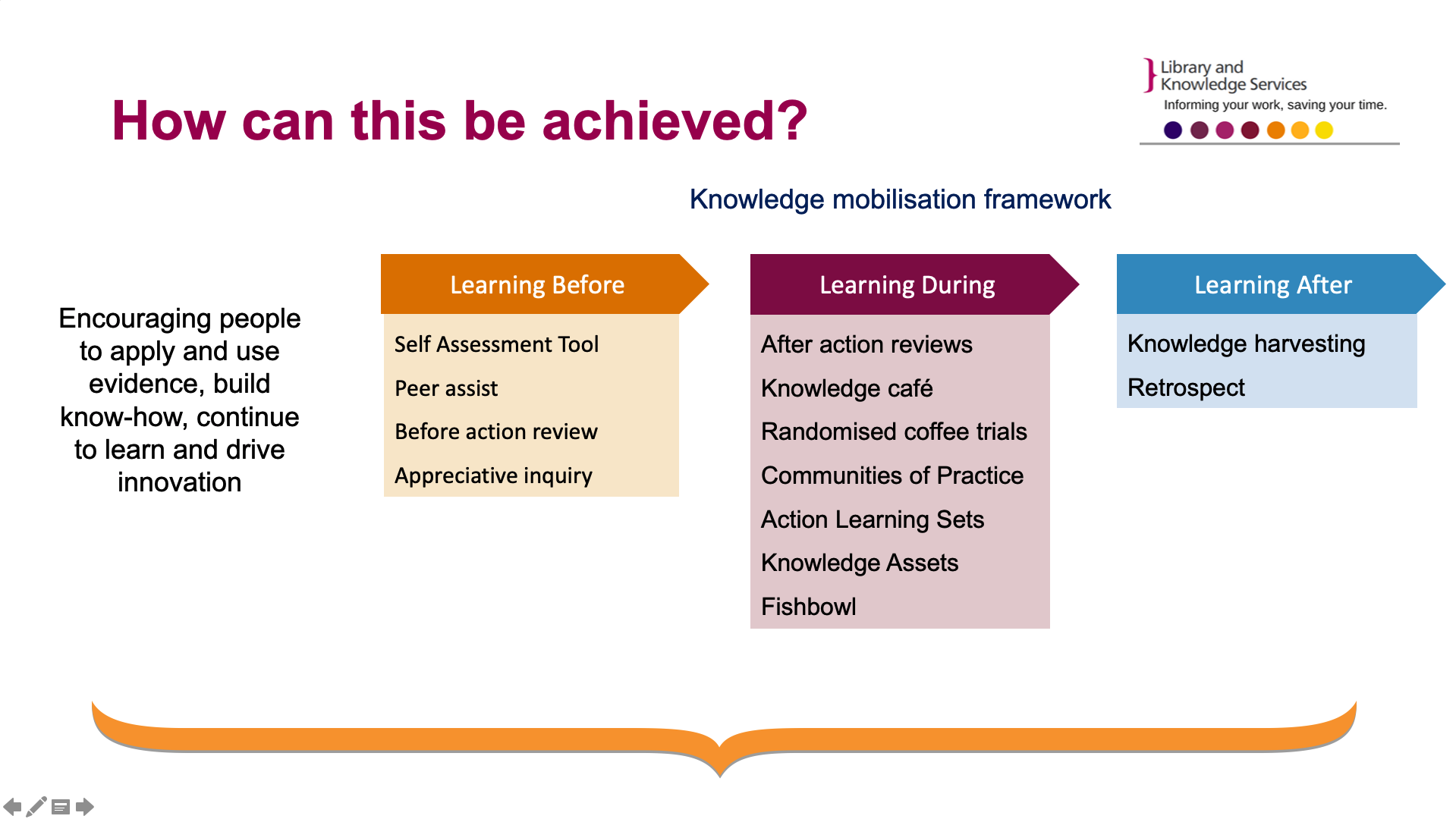
This can be achieved by encouraging more people in the health service to use evidence from research but also to connect with each other to share ideas, to collect this know-how and make it available for re-use by individual teams and organisations. There are some simple techniques available that can help with this such as those described in the NHS Knowledge Mobilisation Framework.
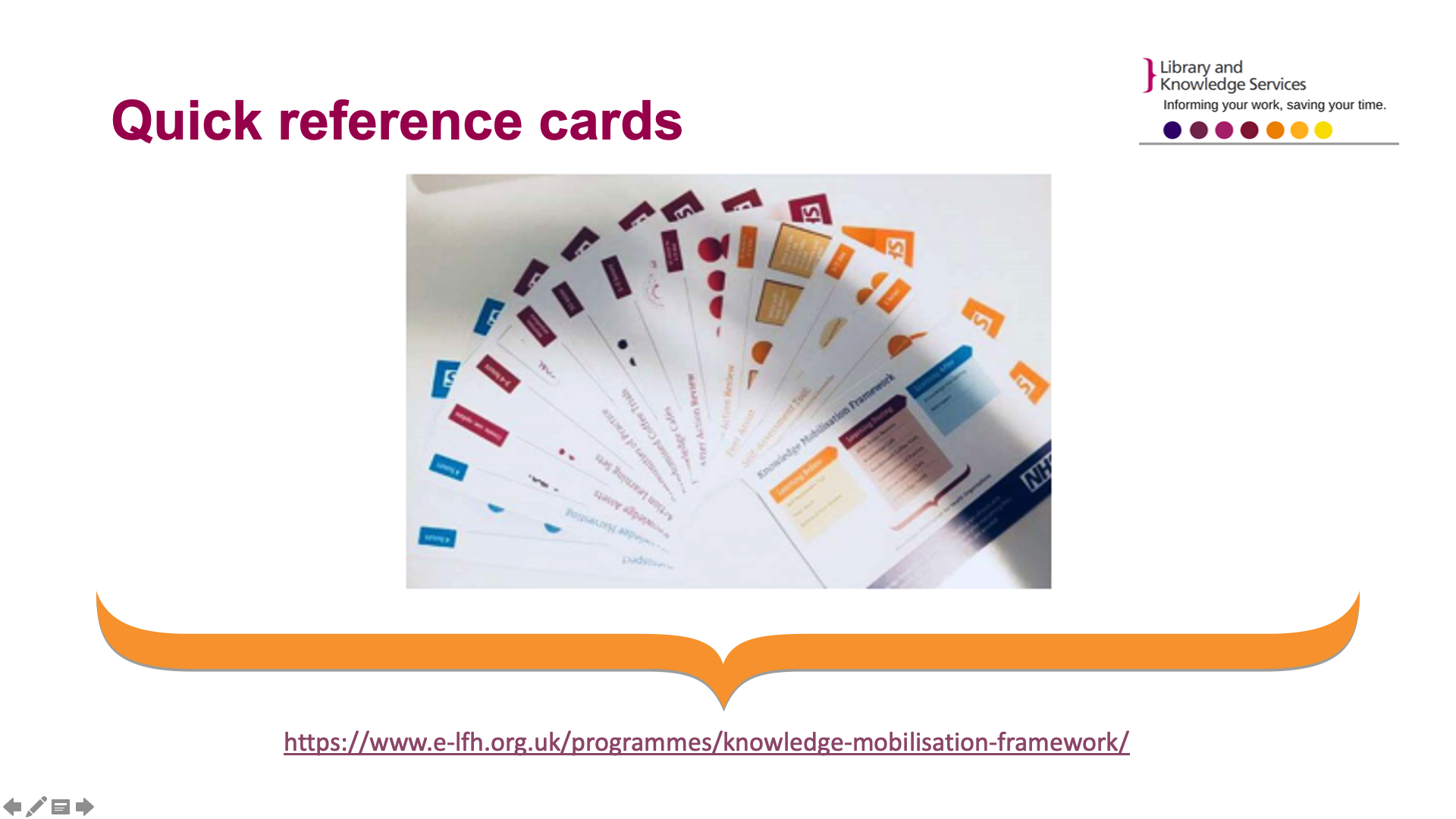
There are 13 techniques that are part of the Knowledge Mobilisation Framework. Each one is described on a postcard or quick reference “aide memoire” card. Each postcard shows you how to undertake each technique, the expected duration of the activity. The colour coding on the postcards shows you whether they should be used before, during or after a particular activity.
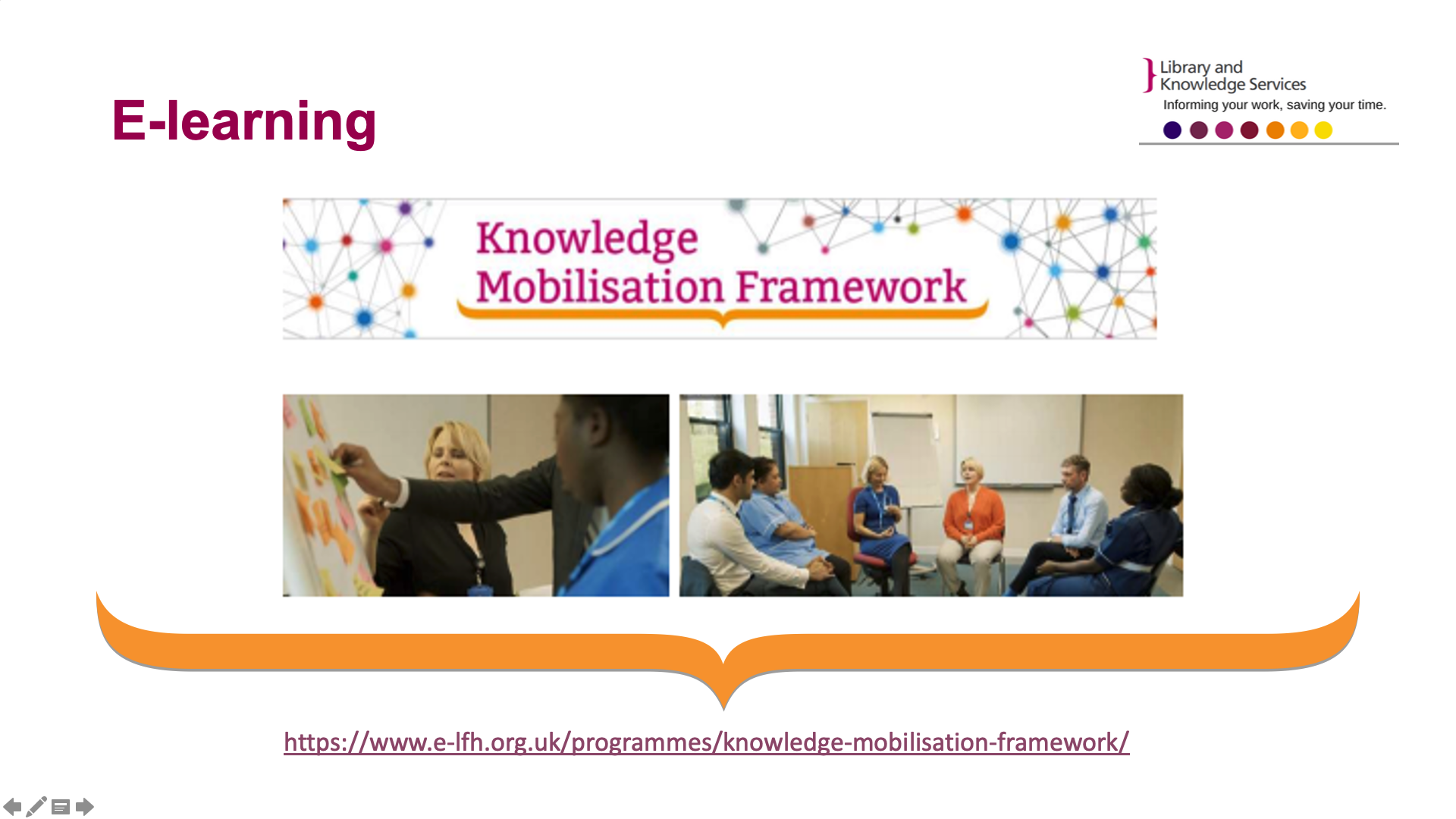
To complement the postcards, we have developed a suite of 11 E-Learning modules featuring some of the techniques.
These resources are free to access via the e-learning for healthcare platform as well as via ESR. The e-learning programme incorporates a choosing tool to help people decide which tool may be best for them at a particular moment.
Each module briefly introduces each technique – highlighting the benefits, provides a quick overview of how to do the techniques and invites participants to have a go at using the technique either by completing a short activity or by planning use of the technique in a real life situation.
Four of the modules - Self Assessment Tool, Peer Assist, Action Learning Set and Retrospect also incorporate some video clips to show the techniques in use and the benefits of using them
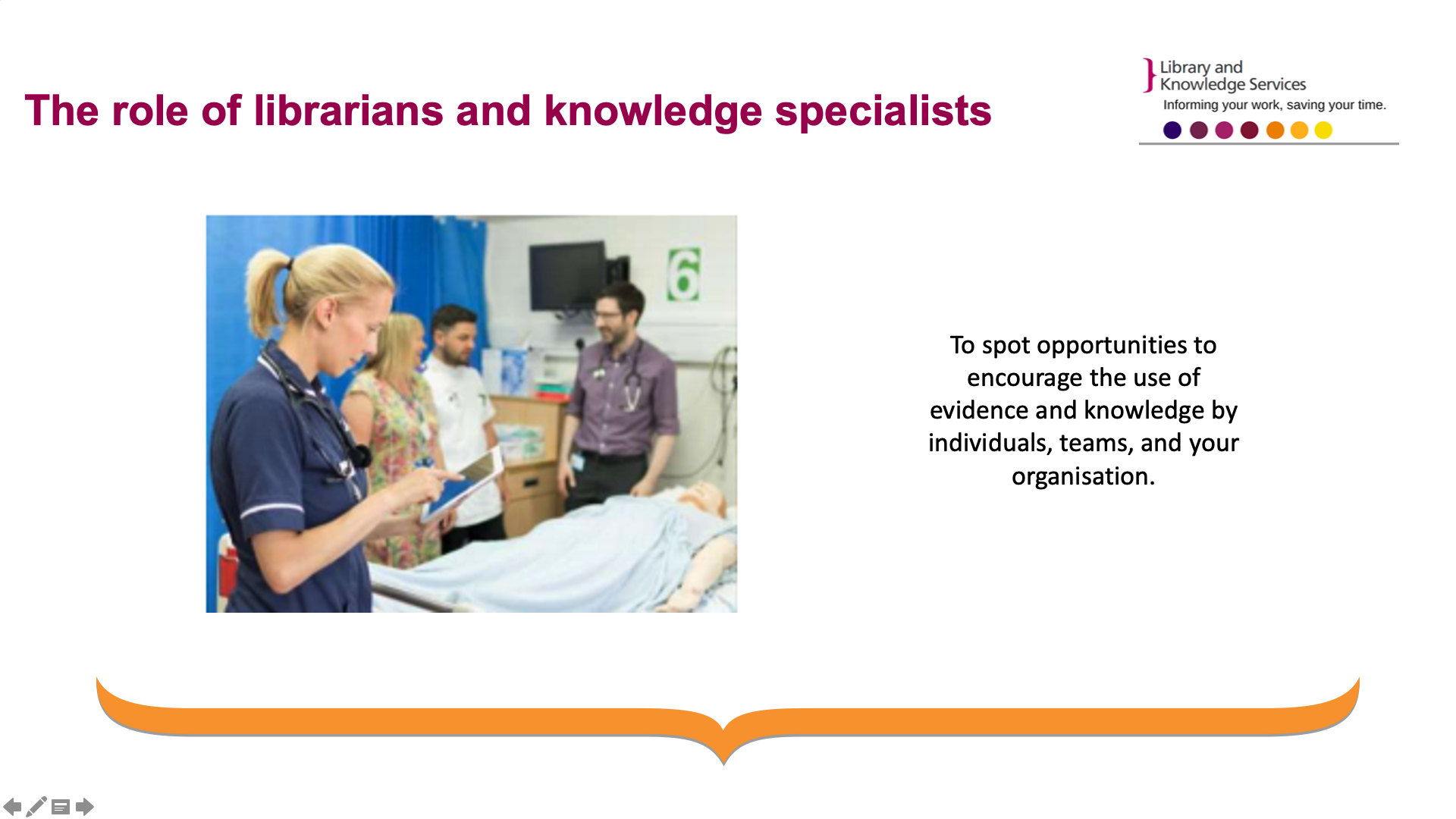
Your role as a knowledge specialist is to spot opportunities to encourage the use of evidence and knowledge by individuals, teams and your organisation. Make sure you are aware of key priorities within your organisation and be able to provide evidence to support decision-making. A simple next step would be to become familiar with some of the techniques in the NHS Knowledge Mobilisation Framework to see how you can apply them in your local context – this may involve you or your team facilitating a knowledge mobilisation technique or it could be as simple as making NHS colleagues aware of the benefits from using knowledge mobilisation techniques.
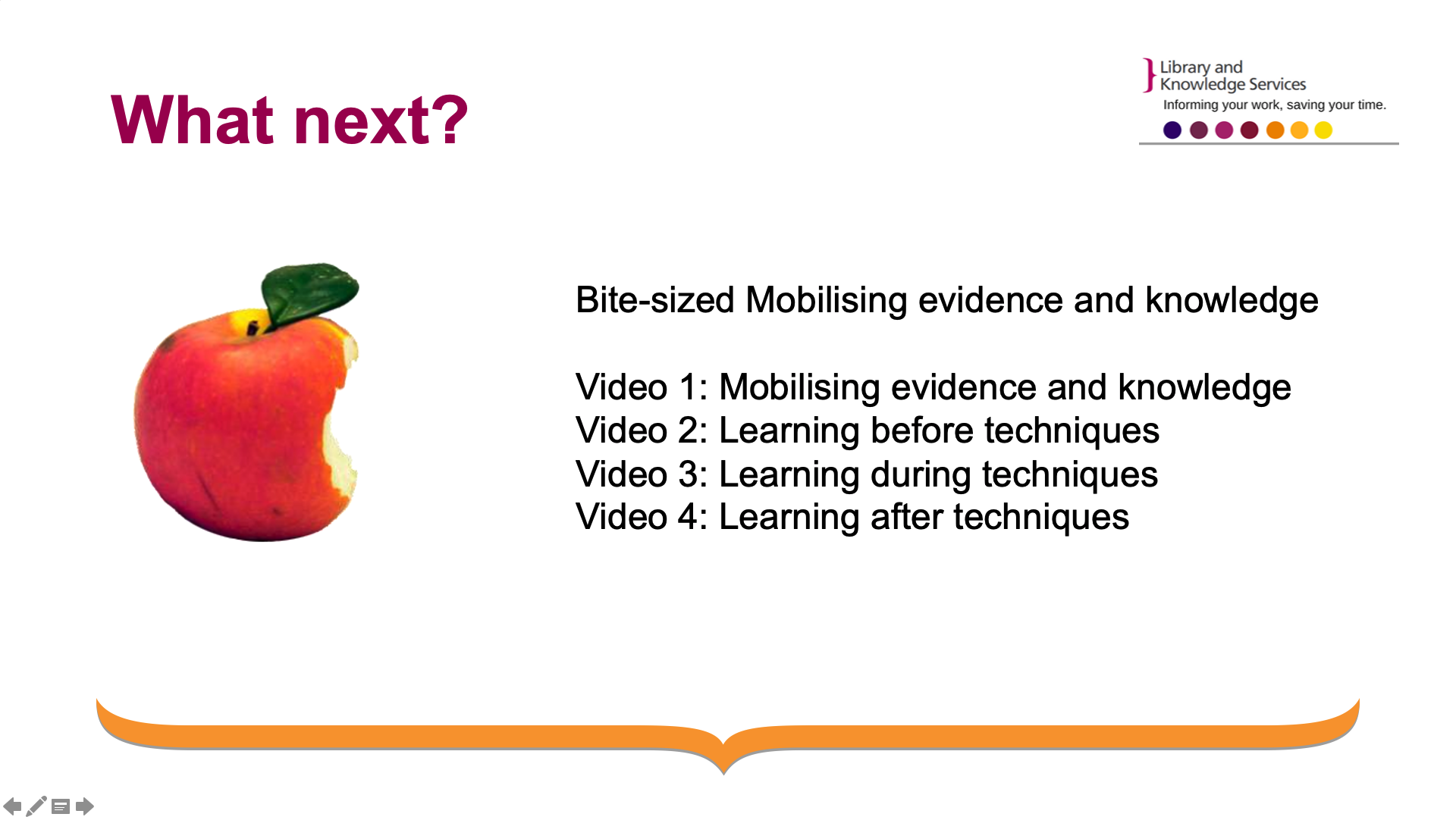
The next bite sized sessions will explore some of the knowledge mobilisation techniques in more detail, make suggestions for how to get started and provide examples of how they have been used by other knowledge specialists. For further examples visit the KM Toolkit and take a look at the KM stories by using the link at the foot of this slide.
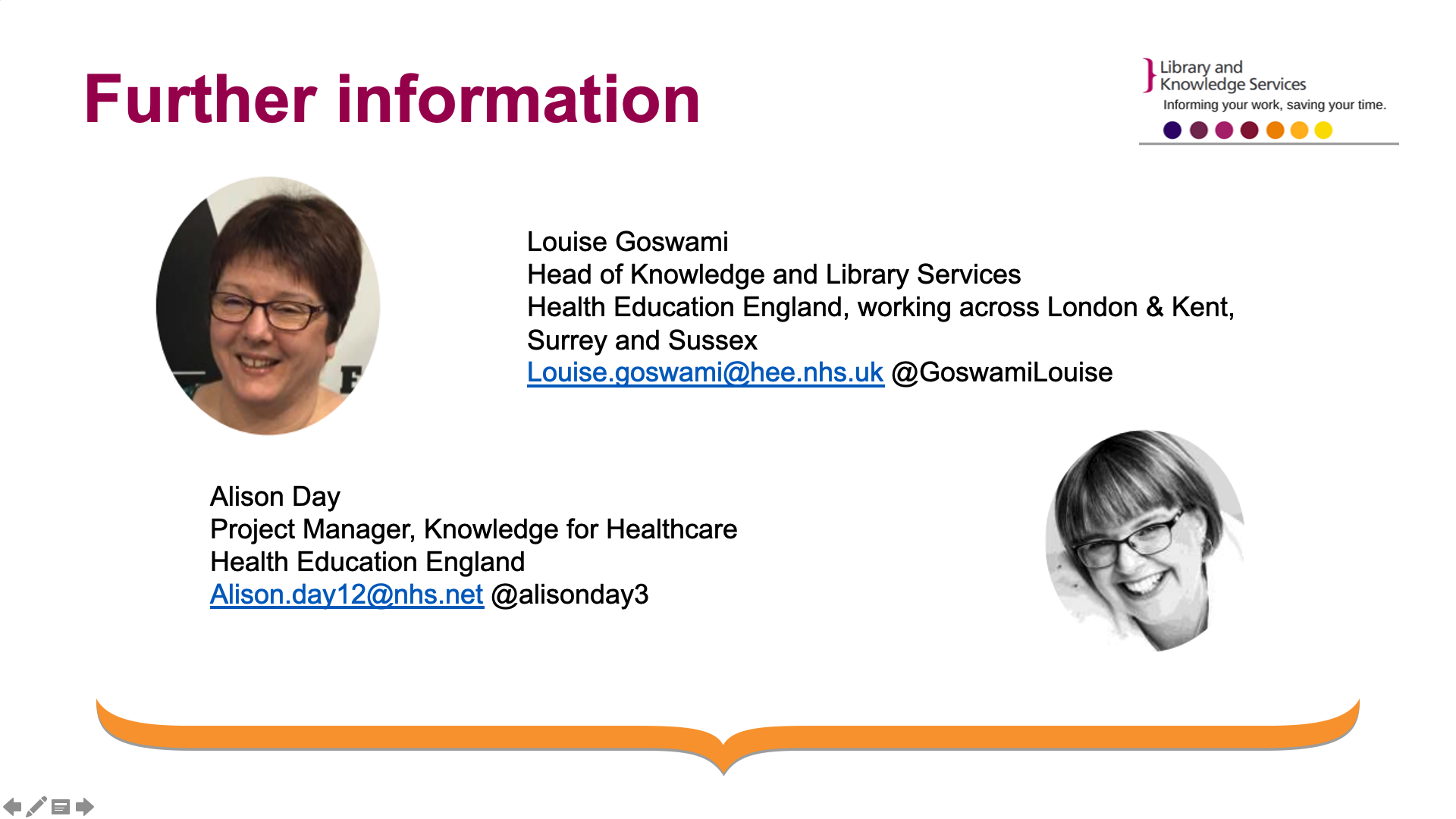
If you would like further information or to share what you have been doing to mobilise evidence and knowledge in your organisation, please contact members of the Mobilising Evidence and Knowledge Group.